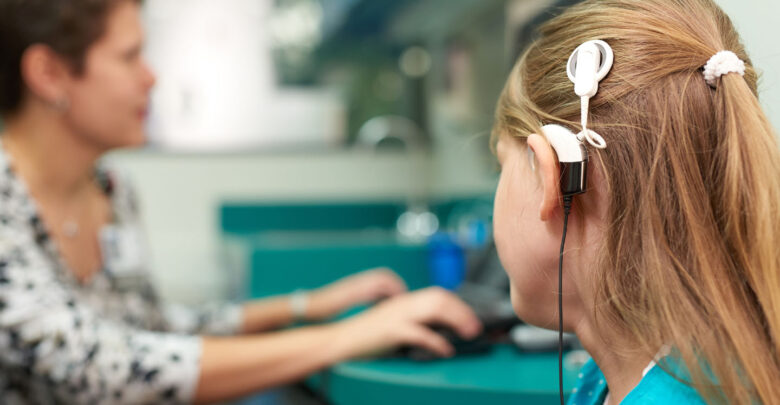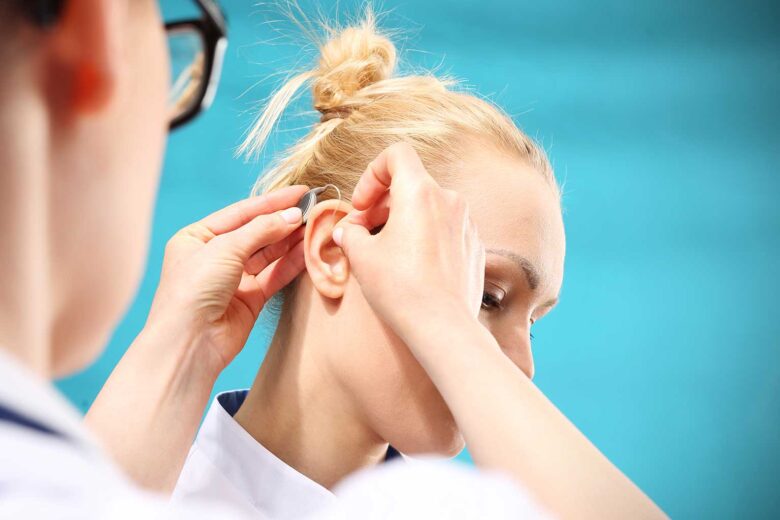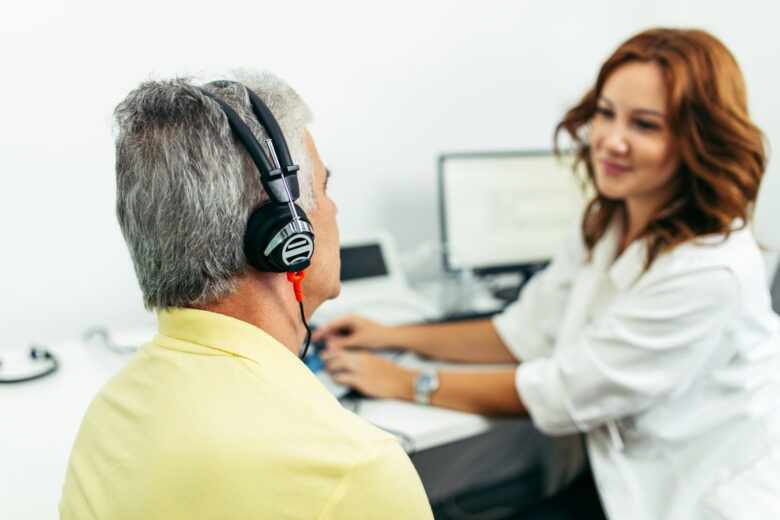Most people are familiar with the ENT profession. Patients with hearing problems come to him. However, not everyone knows who an audiologist is. The occupations of an ENT and hearing care professional are also often confused. They all have a lot in common because they are closely related to the hearing organ. However, it is worth expanding your knowledge in this area to know who to go to in case of various hearing problems. The audiologist deals with treating children and adults, but doctors who specialize in phoniatrics and otolaryngology are also helpful. The most important thing will be to see a specialist if you notice any symptoms related to hearing loss.
Contents
Who to contact in case of hearing problems?

Source: choa.org
If you develop hearing loss symptoms, you can visit your GP first. He will interview the patient, perform a preliminary examination and refer him to a hearing specialist if abnormalities occur. It is an audiologist. The internist may also write a referral to an ENT specialist to deepen the diagnosis. It will perform a series of additional tests. The otolaryngologist deals primarily with the treatment of diseases of the head organs. He treats patients with ear, laryngeal, and nose defects. However, the competence of an ENT specialist is not always sufficient to make a diagnosis or implement treatment. In this case, the patient will be referred to another specialist. The essential physical examinations in ENT are palpation of the lymph nodes and salivary glands, nose review with a speculum, and assessment of the mouth/throat /teeth/tonsils. The ENT specialist also carries out an examination of the larynx and nasopharynx with a unique mirror. It is worth visiting in case of chronic vertigo and balance disorders, snoring and sleep apnea, pharyngitis, swallowing disorders, breathing difficulties, smell and taste disorders, neck and head tumors, nosebleeds, or persistent runny nose.
Which specialist is right for you with hearing loss?
An audiologist nearby (see also: https://www.phonak.com/us/en/find-a-hearing-care-specialist.html) will be helpful for people who need a diagnosis and appropriate treatment for hearing problems. An ENT specialist who specializes in audiology does not always work at the clinic, so it becomes necessary to redirect the patient to the appropriate specialist with competence. An indication for visiting an audiologist is reporting hearing problems if ear inflammation is not detected. A patient with hearing difficulties requires extensive diagnostics to find the source of the problem. The audiologist’s task will be to find the cause of disturbing symptoms related to the hearing organ. Symptoms may include, for example, tinnitus, auditory hypersensitivity, and the feeling of stuffy ears. You can take specialized hearing tests in tonal audiometry, tympanometry, and ABR.
In turn, a hearing care professional is a person who conducts preventive hearing tests on children and adults. Designs and manufactures hearing aid devices. A hearing care professional selects the suitable device for the patient’s needs and provides audio prosthetic care. He can determine the hearing loss with an audiometric hearing test. It takes care of all services related to hearing aids and various types of ear tips. Hearing care professionals are mainly contacted by older adults who suffer from hearing loss and require professional care. A prosthetist is not a doctor therefore, he cannot prescribe medications or implement treatment. To do this, visit an ENT or audiologist. A hearing care professional specializes in creating devices designed to assist hearing.
When is it worth having a hearing test?

Source: enthealth.org
Preventive hearing testing is essential for both children and adults. It is crucial for the elderly who experience noise. You should visit an otolaryngology clinic if you have problems understanding all the words during a face-to-face or telephone conversation. Hearing test indications also show difficulties with hearing a whisper, tinnitus, and the need to increase the volume of the TV/radio receiver. If people from the environment notice that a given person starts to speak louder and louder, they should visit an ENT specialist to assess the condition of the hearing organ.
What are the different types of hearing tests?
Hearing tests can be subjective and objective. The first is tonal audiometry, based on assessing the hearing of low and high frequencies in a quiet room with headphones on. On the other hand, speech audiometry is used to evaluate the hearing and understanding of words. The patient repeats what he hears. Tympanometry is an objective hearing test that allows you to check the proper functioning of the middle ear. Acoustic impedance is measured by how the eardrum responds to pressure changes. It is also possible to assess the condition of the cochlea, for which the otoacoustic emissions test is used. It requires the probe to be placed in the external ear canal. With its help, the signal generated by the hair cells is recorded.
Online hearing test for preventive purposes

Source: optimalhearing.com
Prophylactic hearing tests can be recommended to anyone, you don’t even have to leave your home to do it, and it’s completely free. Many people are unaware that they may have difficulty hearing outside sounds. Many websites on the Internet allow you to make a virtual visit to a prosthetist. The online test assesses how well the patient hears sounds in different frequency ranges. The next stage will be an interview with a prosthetist to identify the ability to hear in difficult situations. Finally, the patient receives the result of the hearing test and valuable instructions on how to proceed in the event of a hearing loss. For many people, the solution to the problem will be choosing the right hearing aid, thanks to which the sounds heard will become more apparent as a trouble-free understanding of the spoken words by the interlocutor.
How can you protect your hearing on a daily basis?
To reduce the risk of hearing loss, avoid crowded places and listen to loud music through headphones and loudspeakers. It is recommended to turn down the equipment, i.e., lower the call sound volume on the telephone, TV set, and radio, for example. It will also be crucial to protecting your hearing in the workplace in noisy environments. It is a good idea to stay silent as often as possible to let your hearing relax. Another issue will be not using earbuds, which may damage the delicate ear canal. There is also a significant risk of pressing the earwax deeper, which will form a dangerous plug. Often, hearing problems result from the residual earwax in it. Therefore, it is worth using pharmacy preparations to thin the secretion and facilitate the cleaning of the ear canal safely. It is also essential to prevent moisture in the ears, which increases the risk of infection.
